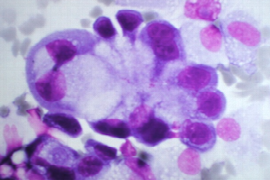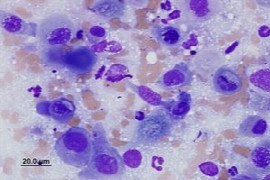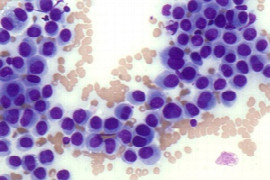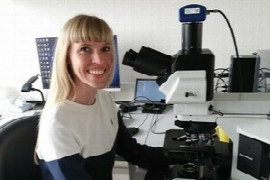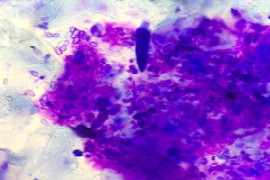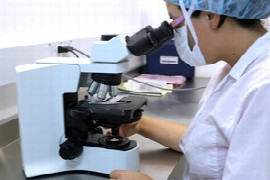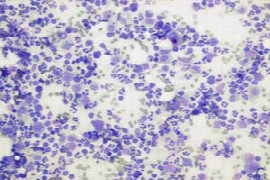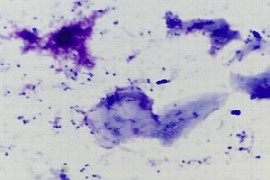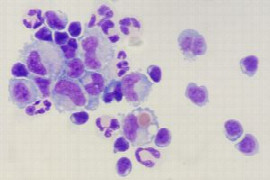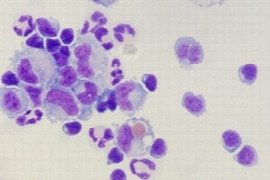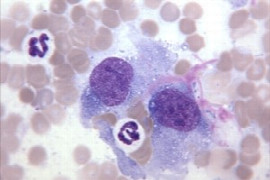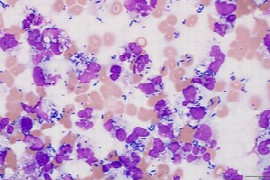Search result for "cytology" (12 articles)
Pitfalls of Cytology
Cytology is a useful clinical tool for investigation of disease processes, however like all diagnostic procedures there are associated pitfalls. Cytology should be considered a guide. Characteristics of the cells may not be sufficient in many in-stances to yield a definitive diagnosis or indicate the probable behaviour of the lesion. These may require examination of the overall architecture of the tissue, for which cytology is not appropriate. Richard will be discussing the tricks and traps of cytology and giving an overall understanding of its uses.
Duration:
1:08 h
Speaker:
Richard Ploeg
from 1
US$ 46.20
(incl. tax)
(incl. tax)
In house cytology of skin masses- tips and tricks
Have you been frustrated by your cytology samples and getting the right cytologic diagnosis? Here is your opportunity to develop those skills. This webinar will outline the tips and tricks to getting a cytologic diagnosis. We will start with how to increase your chances of a diagnostic quality sample – covering sample collection and preparation. We follow with an outline of a systematic approach to evaluation of cytologic specimens – identifying inflammation versus neoplasia and criteria of malignancy, and categorization of neoplasia as epithelial, mesenchymal, round cell, and neuroendocrine. We will then explore some of the exceptions to our cytology rules and guidelines of when to seek out help from an expert. All complemented with lots of pictures of clinical cytology specimens.
Duration:
0:51 h
Speaker:
Natalie Courtman
from 1
US$ 46.20
(incl. tax)
(incl. tax)
Evaluation of Cytology Samples for Nurses
Improve your cytology skills and learn how to navigate your way when evaluating the cells on the cytology slides.
Duration:
0:45 h
Speaker:
Brett Stone
from 1
US$ 46.20
(incl. tax)
(incl. tax)
How to get the most out of cytology samples for Nurses
How to get the most out of cytology samples - practical tips around sample collection and processing
Duration:
0:50 h
Speaker:
Laureen Peters
from 1
US$ 46.20
(incl. tax)
(incl. tax)
Antimicrobial therapy for skin diseases in companion animals
Secondary bacterial and/or yeast infections are common complications of a variety of primary skin diseases in companion animals, including common allergic diseases. Although the importance of addressing secondary infections is recognised, many of the lesions they cause are non-specific and not readily distinguished from primary diseases. Accurate diagnosis of skin infections is reliant on diagnostic testing, and although skin cytology sampling is of greatest importance, superficial sampling techniques are a relatively recent introduction to clinical practice. Thus historically, there has been a tendency to treat skin infections in companion animals based on suspicious clinical lesions and/or odours, or to cover with antimicrobial therapy ‘just in case'. With the increasing development of antimicrobial resistance, questioning the appropriateness of antimicrobial therapy for every patient has become very important. Appropriate use of antimicrobials revolves around two important aspects. Firstly, to only use antibiotics and/or antifungals when they are clearly indicated, which is reliant on accurate diagnostic tools. Secondly, to make appropriate medication choices and direct optimal doses and durations of therapy. This webinar will cover the use of skin cytology for accurate recognition of secondary bacterial and yeast infections, together with evidence-based recommendations on optimal antimicrobial therapies, including topical versus systemic therapies, and challenges of MRSP infections.
Duration:
1:00 h
Speaker:
Linda Vogelnest
from 1
US$ 46.20
(incl. tax)
(incl. tax)
Fundamentals of Cytology for ECC Veterinarians
This webinar will discuss the fundamentals of cytology, with a focus on emergency and critical care scenarios. It will cover topics such as evaluation of blood films, analysis of body cavity effusions and how to obtain a diagnostic FNA. This webinar will be most relevant to veterinarians working in ECC, but will also be of benefit for those in general practice.
Duration:
0:41 h
Speaker:
Rebekah Liffman
from 1
US$ 46.20
(incl. tax)
(incl. tax)
Cytology Sample Collection, Preparation and Handling (for nurses)
Cytology has many advantages over histopathology, however it also has its limitations. Adequate sample collection, preparation and handling is of upmost importance when it comes to cytological interpretation as it is the veterinarian’s/nurse’s responsibility to not only collect the specimen appropriately, but to also adequately prepare the specimens that are to be presented for cytological examination. Regardless of the experience of the nurse, clinician or veterinary pathologist examining the smears, poor sample collection and preparation will most likely result in interpretations such as; ‘Open’, ‘Equivocal’ or ‘Non Diagnostic’. Improving the quality of cytological submissions will maximise the likelihood of a meaningful cytological description and a more accurate cytological interpretation.
Duration:
0:46 h
Speaker:
Brett Stone
from 1
US$ 46.20
(incl. tax)
(incl. tax)
Why I love seeing ear infections - crucial tips on diagnostics and treatment
Utilising case studies, this webinar will focus on essential diagnostic and treatment tips that turn around many chronic otitis cases quickly. Optimal use of diagnostic tests will be discussed, including techniques and indications for otoscopic exam, cytology, and culture and sensitivity testing, and their relative importance for guiding selection of effective treatment plans...
Duration:
1:13 h
Speaker:
Linda Vogelnest
from 1
US$ 46.20
(incl. tax)
(incl. tax)
CSF evaluation - Cytology and Infectious Disease Diagnostics
Evaluation of CSF is an important diagnostic tool for assessment of patients displaying neurological abnormalities. Basic cytological evaluation of CSF includes determination of the total and differential leukocyte counts and protein concentration. In addition, other cytological abnormalities including atypical or neoplastic cells, infectious agents or evidence of haemorrhage may be identified. Pre-analytic variables, clinical signs and species variations must be taken into consideration when interpreting cytological findings. Characterising the type of inflammatory response can help to clarify the underlying pathological processes. Identification of infectious agents can be achieved using a number of methodologies and is a vital component of accurate diagnosis and treatment of neurological disease.
Duration:
0:47 h
Speaker:
Leanne Twomey
from 1
US$ 46.20
(incl. tax)
(incl. tax)
CSF evaluation - Cytology and Infectious Disease Diagnostics (for Nurses)
Evaluation of CSF is an important diagnostic tool for assessment of patients displaying neurological abnormalities. Basic cytological evaluation of CSF includes determination of the total and differential leukocyte counts and protein concentration.
Duration:
0:53 h
Speaker:
Leanne Twomey
from 1
US$ 46.20
(incl. tax)
(incl. tax)
Hot tips on pathology submissions
Diagnostic pathology provides veterinarians with vital information for diagnosis, treatment and monitoring of diseases in animals. There are many things vets can do to help get the maximum benefit from their pathology testing. Ensuring samples are correctly collected, stored and prepared is just as important as test accuracy and helps the laboratory to provide you with accurate and reliable results.
Duration:
0:49 h
Speaker:
Leanne Twomey
from 1
US$ 46.20
(incl. tax)
(incl. tax)
Pathology - Microscope Technique - Cell Morphology and Interpretation for Nurses
The correct use of the microscope is important to optimize microscopic visualisation of cytology specimens. Cell identification is useful in diagnosing and ruling out certain conditions, narrowing the list of differential diagnoses.
Duration:
0:53 h
Speaker:
Astrid Oscos Snowball
from 1
US$ 46.20
(incl. tax)
(incl. tax)
